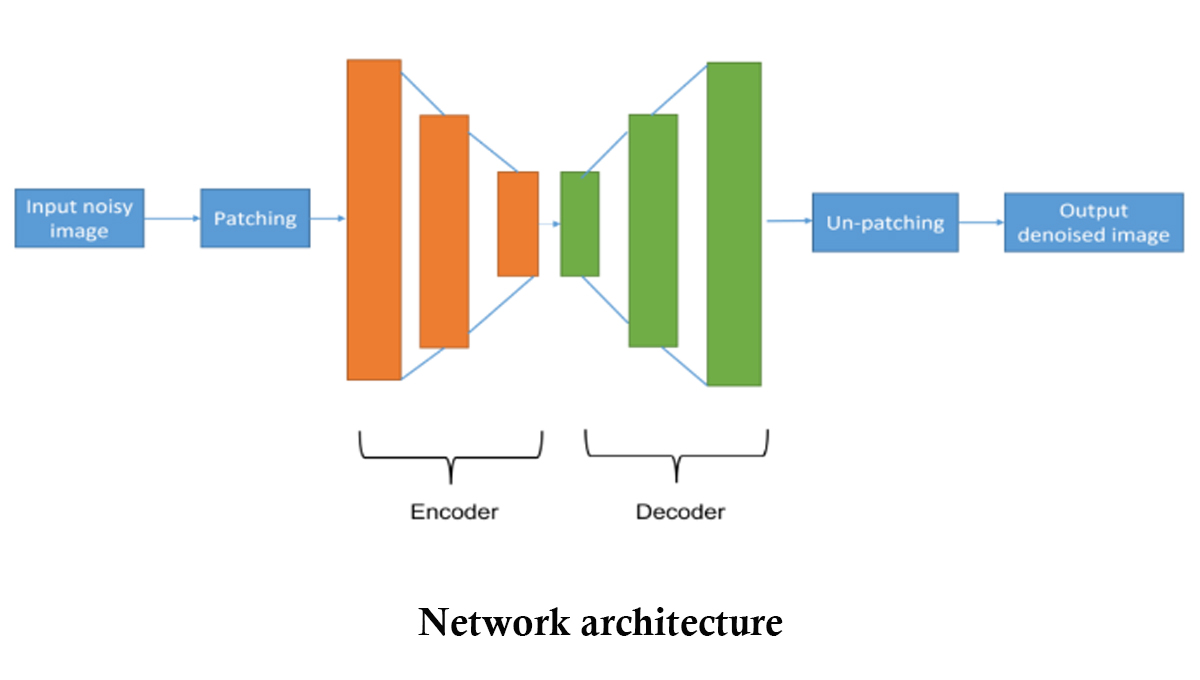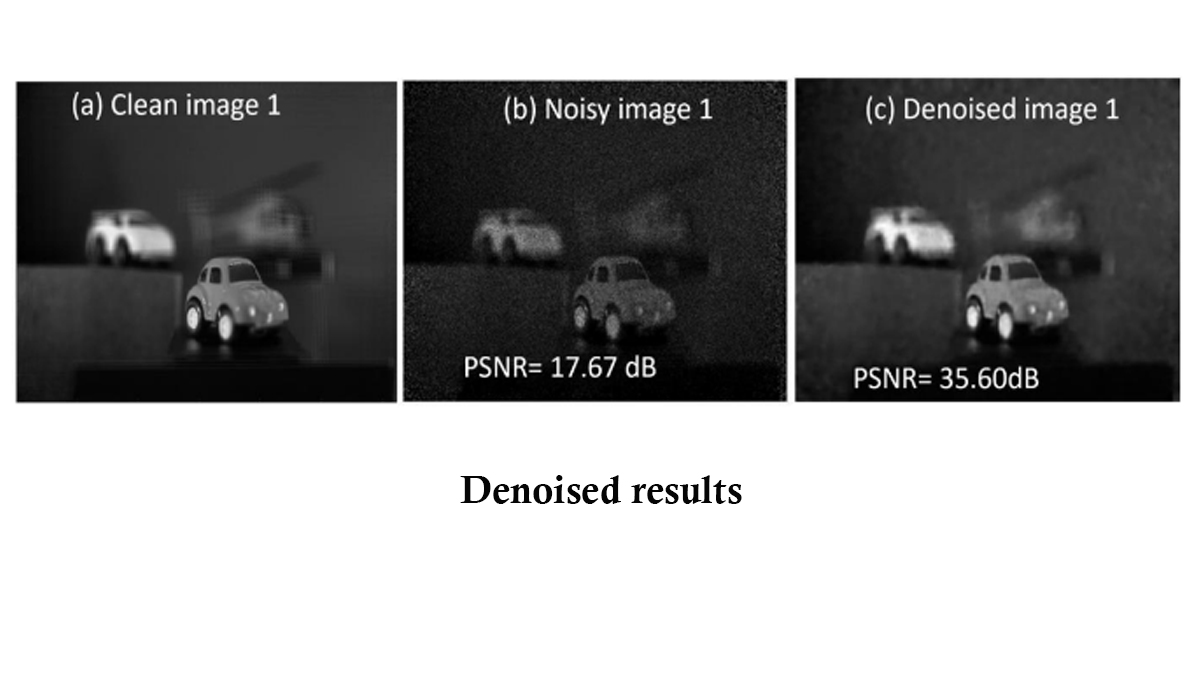The research paper, An under complete autoencoder for denoising computational 3D sectional images from the Department of Electronics and Communication Engineering has been accepted in a prestigious conference called Imaging and Applied Optics Congress to be held in Vancouver, Canada 2022. Assistant Professors; Dr Sunil Chinnadurai, Dr Karthikeyan Elumalai, Dr Inbarasan Muiraj, and the PhD students; Ms Vineela Chandra Dodda and Ms Lakshmi Kuruguntla are the authors who contributed to composing the paper.
Abstract
 This paper proposes to use a deep-stacked under complete autoencoder to denoise the noisy 3D integral (sectional) images with a patch-based approach. In this process, the noisy input 3D sectional image is divided into multiple patches, which are then used to train the neural network. By using the patch-based approach, the time required to prepare the labeled training data is greatly reduced. Results demonstrate the feasibility of our proposed model in terms of the peak-signal-to-noise ratio.
This paper proposes to use a deep-stacked under complete autoencoder to denoise the noisy 3D integral (sectional) images with a patch-based approach. In this process, the noisy input 3D sectional image is divided into multiple patches, which are then used to train the neural network. By using the patch-based approach, the time required to prepare the labeled training data is greatly reduced. Results demonstrate the feasibility of our proposed model in terms of the peak-signal-to-noise ratio.
 Explanation of the research
Explanation of the research
Denoising is one of the preliminary processes in image processing that removes noise from an image of interest and restores a clean image. The noise which was generated during the image acquisition process is attenuated using deep learning techniques. The denoised image is further used in various tasks of image processing.
In any image acquisition system, noise is inevitable and needs to be attenuated before further processing for qualitative results. The medical field is an example of this (images acquired through CT, MRI, PET, etc.). The researchers further investigate various techniques in deep learning to improve the denoising performance along with the applicability of deep learning in various tasks such as object recognition etc.

